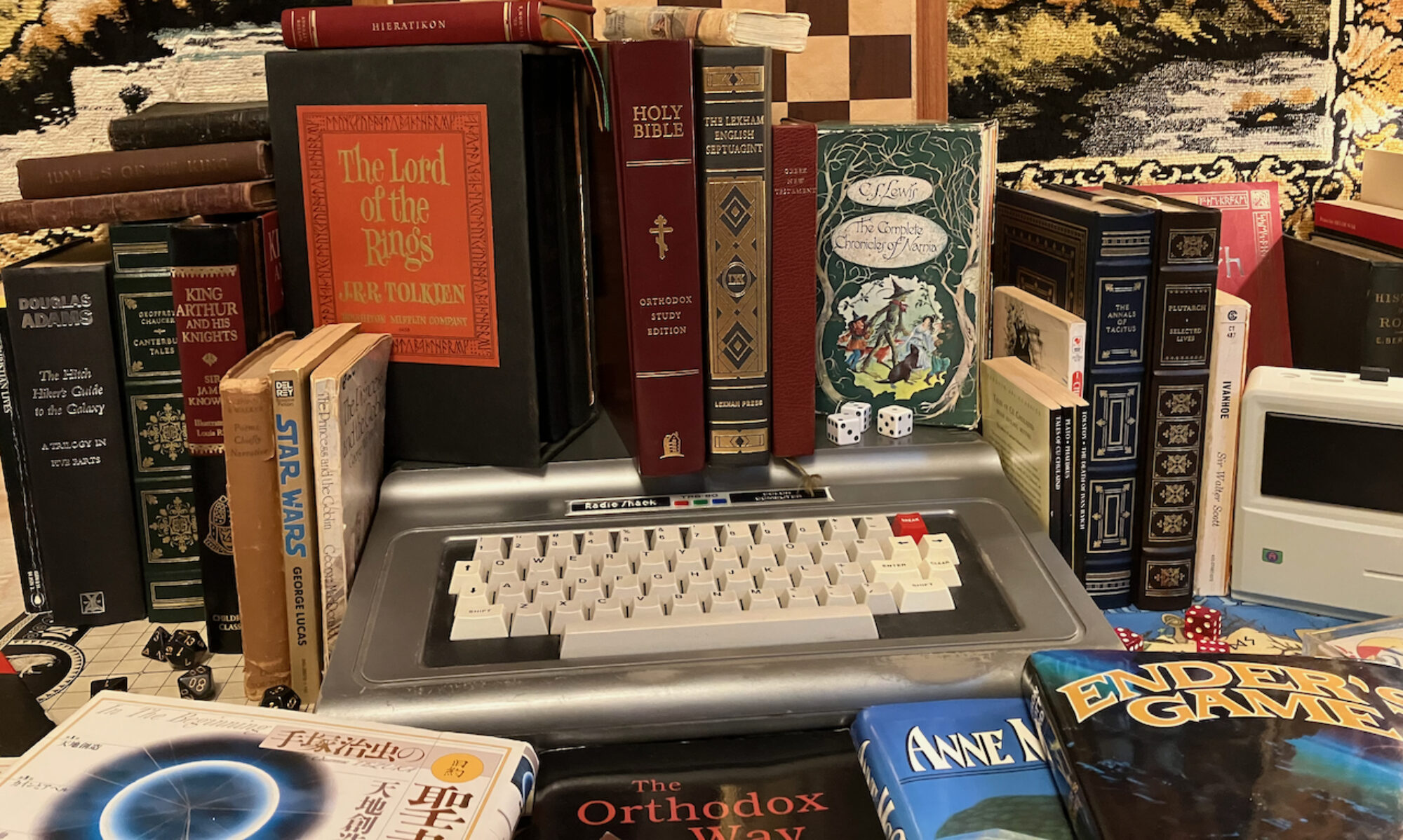About This Site
It has been said that Orthodox Christianity “baptizes cultures.” How about sub-cultures?
To answer this question, we first need to understand in what sense Orthodox Christianity “baptizes cultures.” Obviously, a culture is not something you can immerse in water – or at least the antediluvian cultures that were so immersed did not re-emerge from the water, which was largely the point of the flood. Baptism is the rite by which individuals enter the Orthodox Christian Church as individuals – there is no provision (St. Vladimir aside) for accepting an entire culture as culture into the Church via baptism.
Orthodox Christianity’s baptism of cultures, then, is a metaphorical description of what happens when enough of the individuals comprising a culture are changed by their “living out” of their baptism that the culture itself is changed. The ideal end-point of this transformation is for the culture to become, in some sense, a “Christian” culture – a culture infused with elements of Christianity that supports and encourages its members to live as Christ teaches us – though in practice this Christianization of culture is always in-process, just as we ourselves are always in the process, in this life, of “working out our salvation in fear and trembling.”
A sub-culture differs from a culture in that participation in and identification with the sub-culture is largely voluntary, and the definition of a sub-culture tends, as a result, to be more arbitrary and artificial than organic – more of a conscious construct chosen by or imposed upon a specific sub-group, rather than the sum of the habitual tendencies of a specific geographical-linguistic group’s members. That being said, if the essential definition of a sub-culture is not in any way fundamentally opposed to Orthodox Christian tradition, baptism of a sub-culture through the baptismal transformation of a significant majority of its members should be possible.
All that being said, I am not interested in the baptism of “geek” sub-culture as a whole – that seems to me, even if possible, to be part of a much larger project than anything a humble blog might be able to accomplish. Rather, I am interested, as an Orthodox Christian and as involuntary member of the “geek” sub-culture, in exploring what that baptismal transformation might entail, for me and for my sub-culture as a whole.
Orthodox Christian baptism involves us in both renunciation and sanctification – as we “die to self” in our immersion in the baptismal waters, anything that gets in the way of our being transformed by the renewing of our minds must be given up, and as we become alive to God in our emergence from the baptismal waters, everything that was originally created good in us and in our relation with the world around us is renewed and re-sanctified: we are dead to sin and alive with Christ. Our entire relationship with God and with the world around us is experienced in and mediated through the One who both created the world and became, as one of us, an essential part of it: the God-man, Jesus. Thus, all of the gifts and talents which make us who we are, all of our interests and predilections, all of the ways in which we identify ourselves as selves and by which we relate to others – all of these enter into the waters of baptism and emerge changed and being changed into the living icon of God whom we were created to be.
So, as “Geek Orthodox”, my primary identification is not with my sub-culture, but with Christ, and that same winnowing process that is being applied to me as I “live out” my baptism must necessarily be applied as well to the sub-culture I identify with. This process is what I wish to explore in this blog… What does it mean to be a “geek” and an Orthodox Christian? What aspects of this sub-culture – and of myself as a provisional member of this sub-culture – can be celebrated and sanctified, and what aspects need to be discarded or transformed in the light of the Gospel?
Ultimately this blog is intended as a footnote to and a microcosm of that much larger ever-ongoing project I alluded to above: the faithful translation of what we have received into our own language and culture (and sub-cultures!) that it may be understood and lived out – and thus thoroughly translated – by us and by those who come after us. That is, I hope this blog may play some small, geeky part in our “traditioning” of our Tradition.
